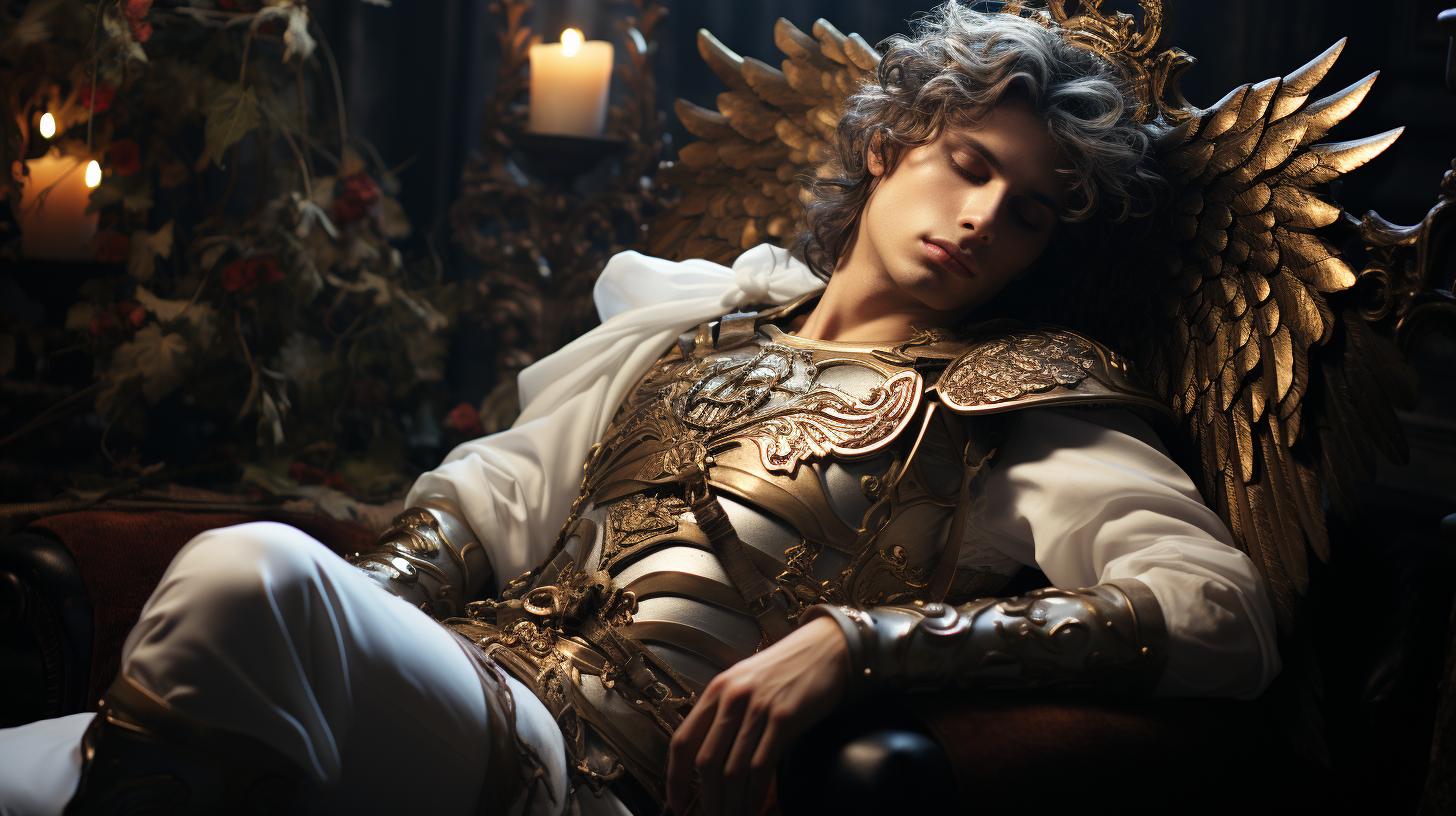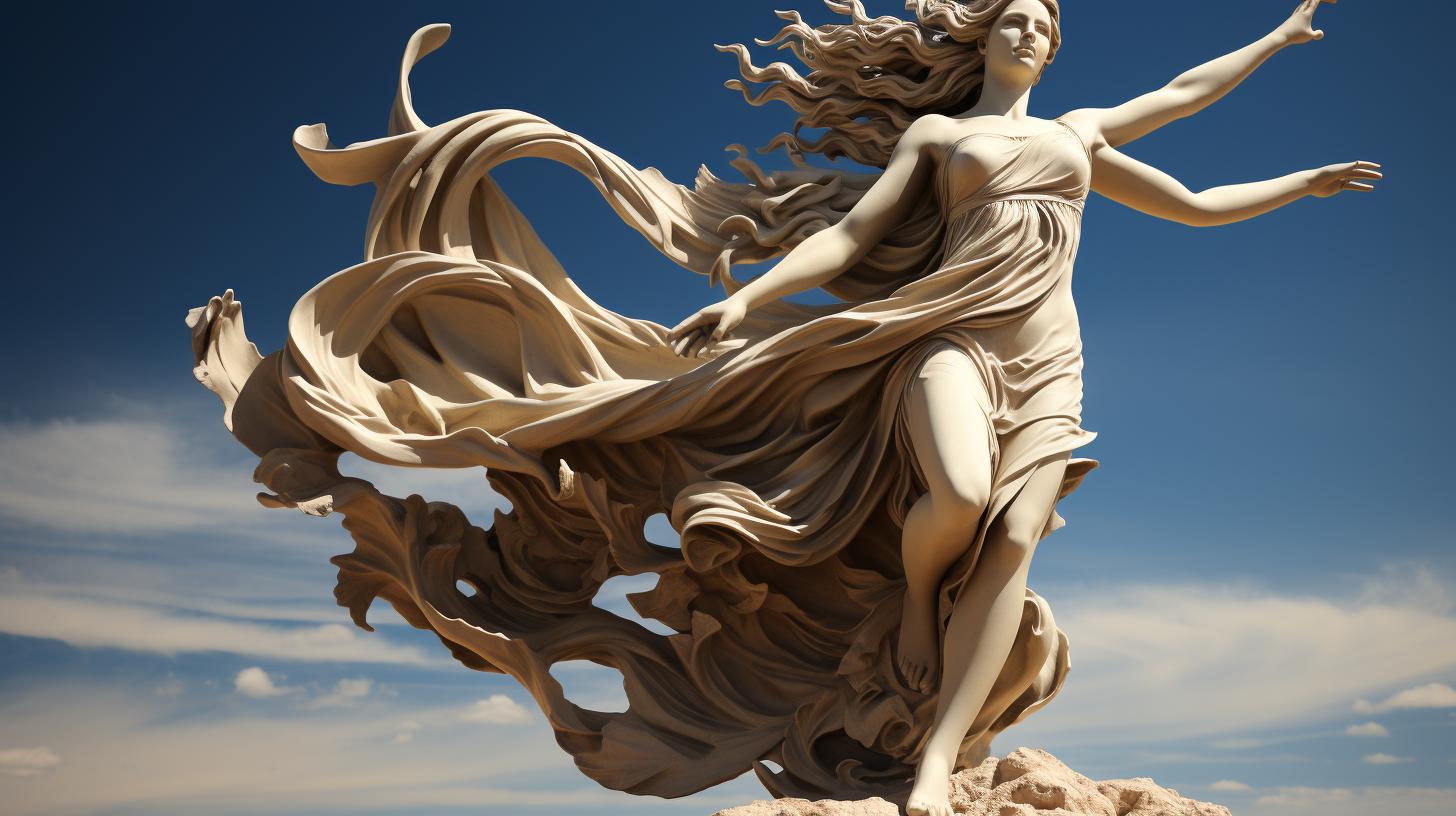Who is Hades, the Greek God of the Underworld?

Hades, the Greek god of the Underworld, was the son of Titans Cronus and Rhea, and sibling to Zeus, Poseidon, Demeter, Hera, and Hestia. As the ruler of the Underworld, Hades shared his kingdom with his wife, Persephone, and was aided by the three-headed dog Cerberus.
Though not directly involved in judging or torturing the guilty, Hades oversaw the punishment of wrongdoers. He was worshipped under different epithets, like Zeus Cthonio or Pluto, emphasizing his association with wealth.
One prominent myth involves Hades’ abduction of Persephone and its connection to the changing seasons. The Underworld also played a role in heroic encounters and the protection of the rights of the dead.
Hades’ influence extended even to mortal lives and death rituals.
Hades’ Realm: The Underworld
Hades, the Greek god of the Underworld, holds dominion over a realm shrouded in darkness, known as the Underworld. This subterranean kingdom serves as the final resting place for departed souls, where they are judged and sentenced accordingly.
Hades as the Ruler of the Underworld
As the eldest son of Titans Cronus and Rhea, Hades was granted rulership over the Underworld after the victory of the Olympians against the Titans. Tasked with maintaining order and overseeing the afterlife, Hades assumes the role of the realm’s stern and respected king.
The Role of Perséfone, Hades’ Wife
Perséfone, daughter of Demeter and Zeus, became the wife of Hades through a tumultuous event. While Hades kidnapped her and brought her to the Underworld, she eventually accepted her role as queen alongside him.
Perséfone acts as a crucial figure representing life and new beginnings in the darkness of the Underworld.
Cerberus: Hades’ Loyal Three-Headed Guard Dog
Cerberus, a fearsome three-headed dog with a serpent’s tail, stands as Hades’ faithful and terrifying guardian at the gates of the Underworld. This monstrous creature ensures that none shall enter or escape without Hades’ permission, emphasizing the strict control and security within the realm.
Hades’ Jurisdiction: overseeing Judgment and Punishment
While Hades governs the Underworld, he delegates the tasks of judging and dispensing punishments to other entities, such as Aeacus, Minos, and Rhadamanthus. These judges are responsible for evaluating the souls and determining their fate, with Hades ultimately preserving the balance between justice and mercy.
Hades’ Epithets and Worship
Hades, the Greek god of the Underworld, was known by various epithets that reflected different aspects of his divine nature. These alternative names shed light on his role and symbolism within Greek mythology.
Two commonly used epithets for Hades were Zeus Cthonio and Plutón.
Hades’ Alternative Names: Zeus Cthonio and Plutón
Hades was often referred to as Zeus Cthonio, emphasizing his association with the subterranean realm. This epithet linked him to his older brother Zeus, the king of the gods, while emphasizing Hades’ domain as the underground ruler.
Another name for Hades was Plutón, which highlighted his connection to wealth and riches hidden beneath the earth’s surface.
Hades’ Association with Wealth and Riches
Beyond his role as the ruler of the Underworld, Hades was closely associated with wealth and riches. As the god who presided over the hidden treasures of the earth, he held a significant place in the minds of the ancient Greeks.
Hades’ association with wealth portrayed him as a figure of power and abundance, controlling the valuable resources that lay deep beneath the ground.
Worship and Representation of Hades in Greek Art
Hades, though feared and respected, was also worshiped in ancient Greece.
His significance in the realm of the afterlife and his impact on mortal lives led to the creation of various representations in Greek art. These depictions often portrayed Hades as a stern and authoritative figure, emphasizing his role as the keeper of the Underworld and the judge of the dead.
Artistic renditions showcased his distinct attributes, such as a dark and somber appearance, a crown symbolizing rulership, and sometimes depicted alongside Cerberus, his loyal three-headed guard dog.
The Myth of Persephone’s Abduction
The myth of Persephone’s abduction is a captivating tale that sheds light on Hades’ relationship with the changing seasons.
As the story goes, Hades, captivated by Persephone’s beauty, seized her and brought her down to the Underworld against her will.
Hades’ Connection with the Seasons through Persephone
Persephone’s abduction by Hades is intricately tied to the cycle of seasons in Greek mythology. When Persephone is in the Underworld, her mother, Demeter, the goddess of harvest, mourns her absence, causing the earth to wither and die, resulting in winter.
Meanwhile, when Persephone returns to the surface, Demeter rejoices, bringing back the vibrant and fruitful seasons of spring and summer.
Persephone’s Life in the Underworld
During her time in the Underworld, Persephone becomes the queen alongside Hades. Though her abduction was against her will, Persephone manages to find solace and purpose in her role as the ruler of the dead.
She is portrayed as a compassionate figure, ensuring fairness and justice in the afterlife.
Hades’ Relationship with Demeter and Zeus
Persephone’s abduction creates a rift between Hades and Demeter, her distraught mother. Demeter’s grief leads to the withering of crops, causing great suffering to mortals. In response, Zeus intervenes and negotiates Persephone’s return, imposing a compromise that will bind her to the Underworld for a portion of each year.
This compromise appeases Demeter and restores balance to the seasons.
The myth of Persephone’s abduction demonstrates the complex interplay between Hades, Persephone, Demeter, and Zeus, highlighting the significance of their roles in the Greek pantheon and the impact their actions have on the natural world.
Hades and Mortals: Interactions in the Underworld
Interactions between Hades, the Greek god of the Underworld, and mortals played a significant role in Greek mythology. Let’s explore some key aspects:
Hades and Heroes: Encounters in the Underworld
The Underworld served as a meeting place between Hades and various legendary heroes.
These encounters often occurred when the heroes descended to the realm of the dead in their quests or during specific missions. Among the notable interactions were Hades’ encounter with Orpheus, who tried to rescue his beloved Eurydice, and Theseus, who entered the Underworld to abduct Persephone’s sister, Helen.
These brave heroes faced challenges and sought guidance or assistance from Hades himself.
Hades’ Role in Defending the Rights of the Dead
Hades acted as the defender of the rights of the deceased, ensuring they received proper burial rites and were treated with respect. When someone failed to receive a proper burial, their soul would not find peace in the afterlife.
Hades, thus, played a crucial role in upholding the ancient Greek belief that every individual, regardless of their deeds in life, deserved a dignified farewell. His involvement also extended to protecting the sanctity of tombs and graves.
Hades’ Influence on Mortal Lives and Death Rituals
Hades’ dominion over the Underworld had a direct impact on the lives of mortals. Ancient Greeks believed that one’s fate after death relied upon Hades’ judgment and decisions. Therefore, individuals would often invoke Hades in rituals and ceremonies related to death.
They sought his favor, hoping for a peaceful afterlife. Additionally, Hades’ influence extended to funeral customs, burial practices, and the proper handling of funerary offerings, ensuring that the deceased found their rightful place in the Underworld.
- Hades facilitated encounters between heroes and the dead.
- He defended the rights of the deceased, emphasizing the importance of proper burial.
- Hades’ influence extended to mortal lives, as he controlled the fate of the deceased.
In conclusion, Hades’ interactions with mortals in the Underworld showcased his significant role as the mediator between the living and the dead.
Whether guiding heroes on their quests or ensuring the proper treatment of the deceased, Hades played a critical part in Greek mythology and the beliefs surrounding life, death, and the afterlife.
.




















